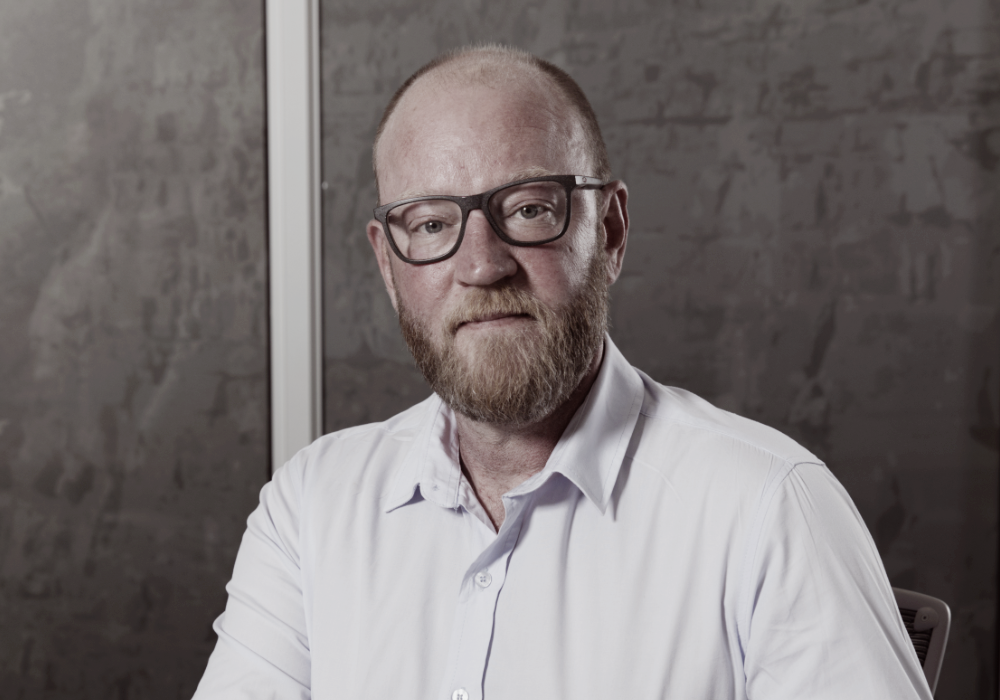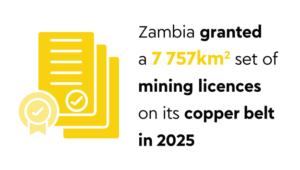In today’s AI-driven world, there is a growing demand for cloud computing, especially in Africa, where digitalisation is a catalyst for development. The interconnection of African markets is essential for economic growth, innovation, poverty alleviation and broader socio-economic transformation.
At the heart of these advancements lies a robust and stable internet backbone, which relies on state-of-the-art data centre infrastructure. Teraco Data Environments has pioneered highly resilient, vendor-neutral colocation data centres across sub-Saharan Africa, creating network-dense ecosystems that allow access to numerous essential service providers, from financial institutions to education, healthcare, content streaming and social networks.
Andrew Owens, Teraco’s lead for interconnection and peering, emphasises the importance of data centres in today’s digital landscape. ‘Everything that happens on the internet today touches a data centre. Data centres are the building blocks of the internet, home to the infrastructure that stores, processes and connects data. The internet is deeply woven into the daily lives of businesses and consumers, and its impact is growing.’
Owens highlights the key role that vendor-neutral data environments play in fostering a competitive digital economy. These environments provide businesses with the freedom to choose the providers and services that best suit their needs without being locked into a single vendor. This open ecosystem has paved the way for internet exchange points (IXPs), which facilitate efficient, rapid data exchange between networks.
‘These peering exchanges ensure that content and cloud services reach users via the most efficient path,’ he explains. ‘By enabling local ISPs, content providers and other networks to interconnect directly at an IXP, data is exchanged locally rather than routed through costly international links. This reduces transit costs, allowing ISPs to offer more affordable internet access.’
IXPs also encourage the growth of local internet ecosystems by facilitating an efficient service to local users, driving the creation and distribution of local content in regional languages. This contributes to greater relevance for local communities, and supports start-ups and small businesses in delivering online services, spurring innovation and promoting digital inclusion.
‘While IXPs prioritise local traffic, they also serve as connection points to global content networks, including CDNs, cloud services and major platforms such as Google, Facebook and Netflix,’ says Owens. ‘Access to these global platforms ensures that users can connect to critical digital resources, including educational and governmental information, essential for digital inclusion.’
Caching servers from global content providers are also housed at IXPs, which store popular content locally. This further improves access to global resources by reducing costs and increasing speed for users.
Teraco supports digital inclusion and the growth of the internet in Africa through NAPAfrica, its neutral, non-profit internet exchange point. NAPAfrica, Africa’s largest IXP, handles a daily peak throughput of 4.5 Tbps, keeping African traffic within the continent and delivering high-speed data transfer with reduced latency.
Within Teraco’s data centres, clients can connect directly to cloud providers through cloud on-ramps or via the Africa Cloud Exchange (ACX), which offers private, secure connections to the cloud. This direct access bypasses the public internet, reducing network costs and offering a more secure, scalable solution for cloud adoption.
‘Cloud computing offers economies of scale that can drastically lower costs for end users,’ says Owens. ‘Colocation data centres like Teraco’s improve infrastructure efficiency, allowing clients to only pay for what they use.’
However, one of the main barriers to cloud adoption in Africa remains data security and the lack of reliable connectivity. Network congestion, outages and other performance issues can hinder businesses from fully migrating to the cloud. By offering secure, private connections to cloud services, Teraco’s vendor-neutral data centres help enterprises overcome these challenges.
‘As more enterprises adopt hybrid cloud strategies, vendor-neutral data centres provide a flexible platform for securely connecting to private and public cloud services,’ adds Owens.
In colocation data centres, interconnected ecosystems are formed by enabling the direct exchange of data and services between tenants within the same facility. This fosters efficient collaboration, lowers latency and facilitates the sharing of resources. Tenants can establish physical cross-connects (fibre or copper) to each other’s systems, allowing for fast, secure data exchange.
The vendor-neutral colocation model also supports a marketplace-like environment where service providers, such as managed service providers and cybersecurity firms, can offer services directly to other tenants within the facility.
With tenants in proximity, data transfer is nearly instantaneous, a key feature for low-latency applications such as financial trading, real-time analytics and AI workloads. The high-speed connections in colocation centres also support bandwidth-heavy applications such as video streaming, big data processing and AI model training.
These interconnected ecosystems also accelerate the development of AI-driven applications, enabling collaboration with AI model providers, storage vendors and computing resources to optimise AI workflows. Organisations requiring large datasets or data-sharing capabilities (healthcare, IoT and autonomous vehicles) benefit from the secure, private data exchange environment that colocation centres offer. This secure setup helps companies comply with POPIA, GDPR or PCI-DSS regulations.
Teraco is the interconnection hub for sub-Saharan Africa, facilitating direct connections to 28 African countries through terrestrial cables, dark fibre, and national and metro networks. Clients also benefit from access to subsea cables along Africa’s coastline from Teraco facilities in Cape Town, Durban and Johannesburg. These include major cables such as ACE, EASSY, Equiano, METISS, SACS, SAT3/SAFE, Seacom, WACS and 2Africa.
‘With over 26 000 physical cross-connects, Teraco is Africa’s most interconnected data centre hub,’ says Owens.
‘This ecosystem connects clients to global cloud service providers, over 285 network providers, more than 50 content providers and a diverse range of enterprises, financial services, IT providers and cybersecurity vendors. Simply put, the world connects to Africa at Teraco.’
Operating in Africa does, however, present unique challenges, including unreliable power supply and the increasing demand for sustainable energy. Teraco, with its 450-strong specialist team, has built a reputation for agility and resilience in addressing these challenges. The company’s data centres operate under a 99.999% service level agreement, guaranteeing power availability and resilience. Teraco has installed more than 180 generators across its South African facilities to mitigate Africa’s power supply issues, supported by mobile generators and ample fuel storage. In a significant move towards sustainability, Teraco secured its first grid capacity allocation from Eskom in February 2024 to build a 120 MW solar PV energy facility in South Africa’s Free State province. The energy generated from this solar farm will be distributed to Teraco’s facilities across the country.
In addition, Teraco is maximising rooftop solar PV coverage across all its facilities and has developed a third-party renewable energy procurement programme to source wind and solar energy from independent power producers.
Given that sustainability has become a key priority for enterprises, Teraco’s commitment to renewable energy is reassuring for businesses with ESG goals. ‘Enterprises are increasingly prioritising sustainability in their service contracts and they recognise the significant impact their data centre footprint has on their carbon emissions,’ says Owens.
As more companies migrate their workloads to data centres with sustainability-led strategies, they can significantly reduce their carbon footprint by choosing cloud providers committed to zero carbon initiatives. Teraco, which holds a silver EcoVadis Sustainability rating and is VMware Cloud verified, offers its clients the ability to leverage this commitment to achieve zero-carbon committed status.
‘Enterprises can differentiate themselves by offering efficient and environmentally friendly services,’ says Owens. ‘With the growing demand for digital services in Africa, Teraco remains committed to building sustainable, resilient digital architectures that drive real-time interactions and foster economic growth across the continent.’


















